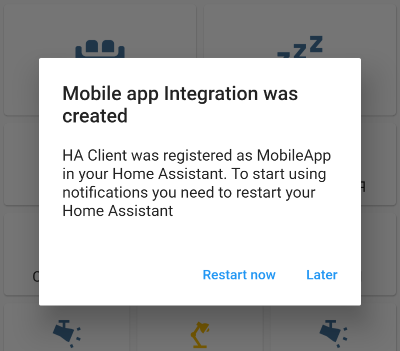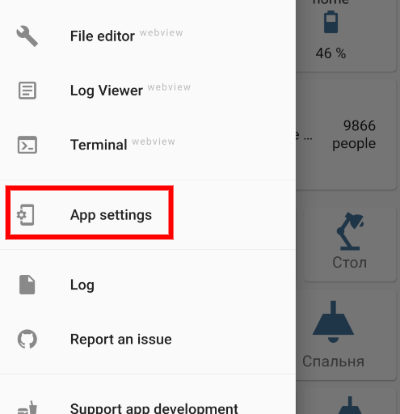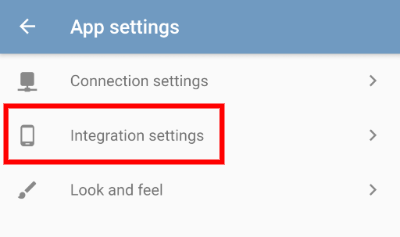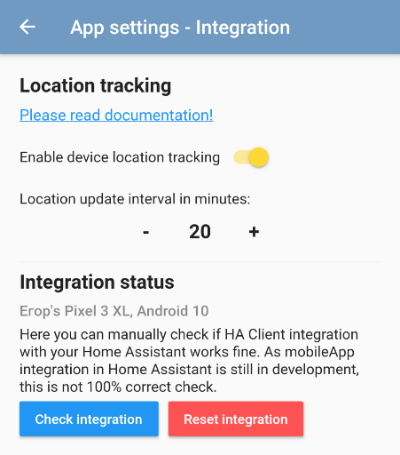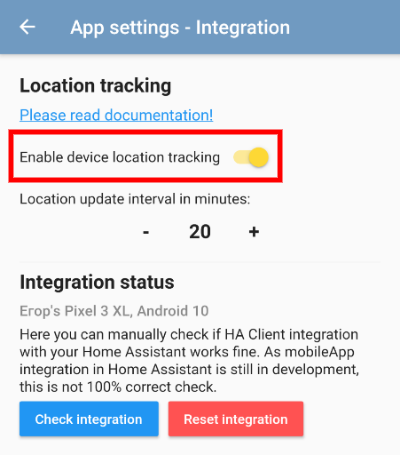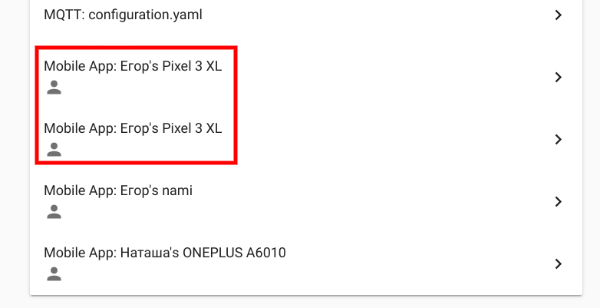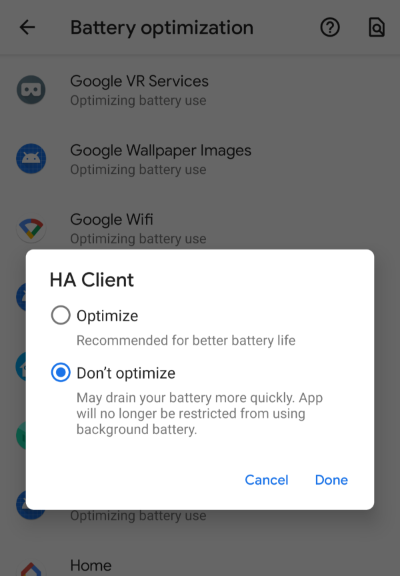4.8 KiB
Help pages - Mobile app integration
If this documentation was not useful enough for you, feel free to ask any question in HA Client on Descord {% include in_post.html %}
Home Assistant Mobile App Integration allows HA Client to handle push notifications and report your device location and battery state.
After successful login HA Client will automatically register itself on your Home Assistant to make notifications and location tracking possible and then will ask you to restart your server.
You can find Integration settings in App settings from main HA Client menu.
Notifications
HA Client supports sending notifications from Home Assistant to the app.
For now notificationas could only have title and text. No actions supported yet. After mobile app will be registered and your Home Assistant will be restarted you'll get a new notify like notify.mobile_app_egor_s_pixel_3_xl. It can be used to send notifications to HA Client on a specific device. Just call this service with some data:
{"title":"Oi!", "message":"Something is moving on your backyard!"}
The title is not mandatory, by defauld it will be "HA Client".
Location tracking
HA Client supports updating device_tracker entity with real device GPS location.
Location tracking is implemented with Andorid Workmanager. It means that background location tracking is battery friendly and work as intended from OS perspective.
After mobile app will be registered and your Home Assistant will be restarted you'll get a new device_tracker entity like device_tracker.mobile_app_egor_s_pixel_3_xl. To start sending location to this entity you need to enable Location tracking in HA Client through Integration settings in App settings
Troubleshooting
For now Home Assistant don't have a way to detect was current application on current device already registered or not. That is why if you will reinstall HA Client or clear all app data, the app will be registered once again and another Integration will be created on your Home Assistant:
As well as second notify service and second device_tracker entity. Notifications will not be handled by HA Client. To fix this you need to got to Configuration - Integrations in your Home Assistant and remove any Integration created by HA Client for your device. Then you need to restart Home Assistant server to make all exces entities to be removed.
Then just open HA Client app. It will check mobile app integration and ask you to registrer again.
Removing Mobile App integration can solve some issues even if you don't have duplicate Integrations. Just remove the integration in Home Assistant, restart Home Assistant and open HA Client to make it register again.
Notification issues
There is a restriction on daily notifications count for each device: 50.
Location tracking issues
- Make sure the Location permission is granted for HA Client.
- You can disable background location tracking task and enable it again to resolve possible issues. Go to Integration settings in HA Client and disable Location tracking to cancel backgroud tasks. Then enable it back.
- You can add exception for HA Client in battery saving settings on your Android device to improve background tasks execution. This can help solving some location tracking issues on older Android versions. It can be achieved differently on different Android versions and even on different devices. For example in Android 10 on Pixel phones you need to go to Settings -> Apps & notifications tap Advanced -> Special app access -> Battery optimization. Or simply search for Battery optimization on main Settings screen with search field. Inside Battery optimization switch to All apps, find HA Client in the list and tap it. On the popup appeared choose Don't optimize:
